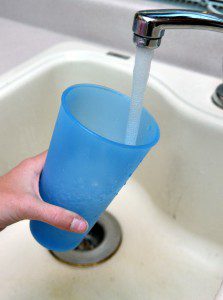 WESTFIELD—Last month, residents heard that some private water wells may be tested in relation to the city’s water contamination.
WESTFIELD—Last month, residents heard that some private water wells may be tested in relation to the city’s water contamination.
Due to this, the Westfield News reached out to the Massachusetts Department of Environmental Protection (MassDEP) to get an update for residents about what is expected to occur, as well as how this may impact those who have private wells.
We corresponded with Catherine Skiba, service center manager for MassDEP’s Western Regional Office, via email to find out more.
According to Skiba, MassDEP is working with both the city and Barnes Air National Guard “to investigate the extent of groundwater contamination detected” in wells one, two, seven and eight in the city’s water supply, specifically perfluoro-alkyl substances (PFAS).
Skiba wrote that city officials and MassDEP are working together to identify the private wells, and once they are IDed Skiba said the sampling of the water will begin. Skiba wrote that the department is unsure of the final cost of the sampling due to the unknown amount that may need to be sampled but cost could be about $300 per sample for analysis. MassDEP is currently obtaining state funding to “sample representative private residential wells in the vicinity of” the city’s public water supply wells.
Previously, the Barnes Aquifer Protection Advisory Committee (BAPAC) highlighted areas where sampling should occur and this information was provided to MassDEP.
Skiba said via email that if “PFAS are detected in a drinking water sample at concentrations which may pose health concerns, MassDEP will discuss with the property owners’ measures that may be taken to address this risk.”
These measures may include having bottled water provided for the residents, installation of a water treatment system, or connection to the public water supply system.
Regarding legal options, Skiba wrote, “MassDEP cannot speak to” private homeowners’ legal options. She added that the department “will work with affected homeowners to address any risk that is found at no cost to the homeowner for the initial response actions,” which may include bottled water or installing a treatment unit.


